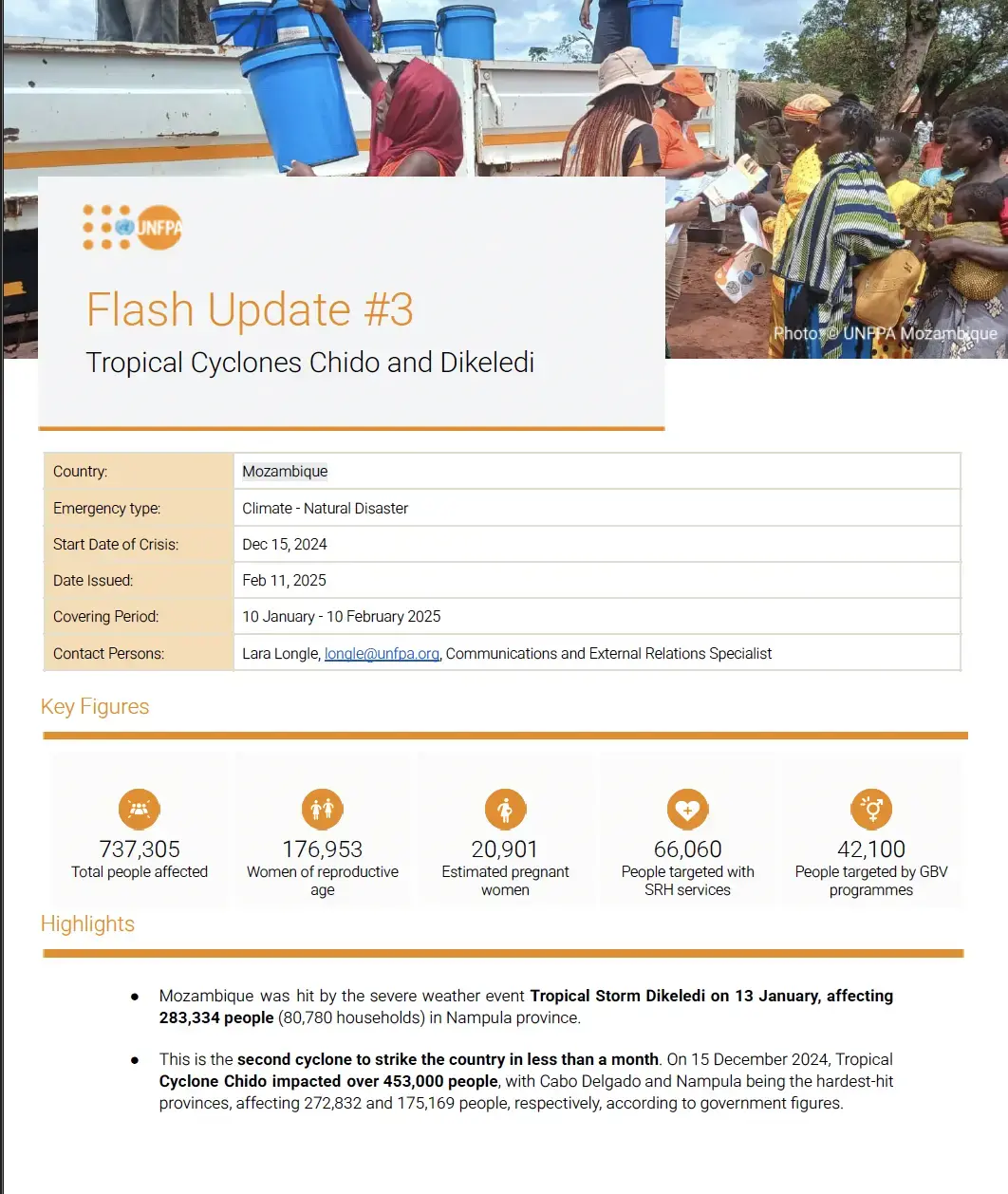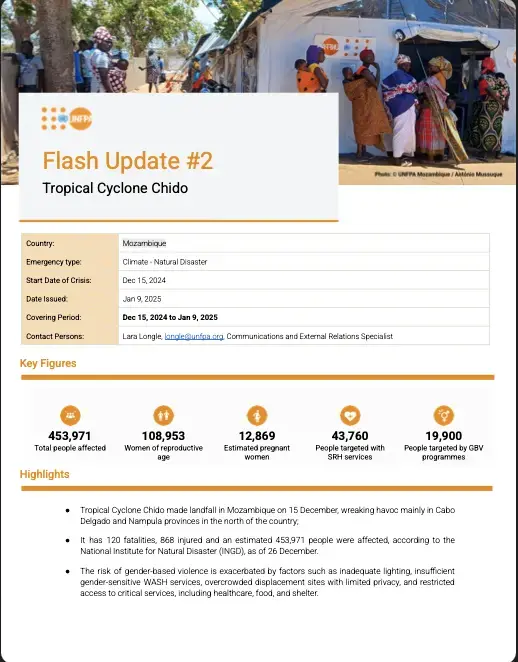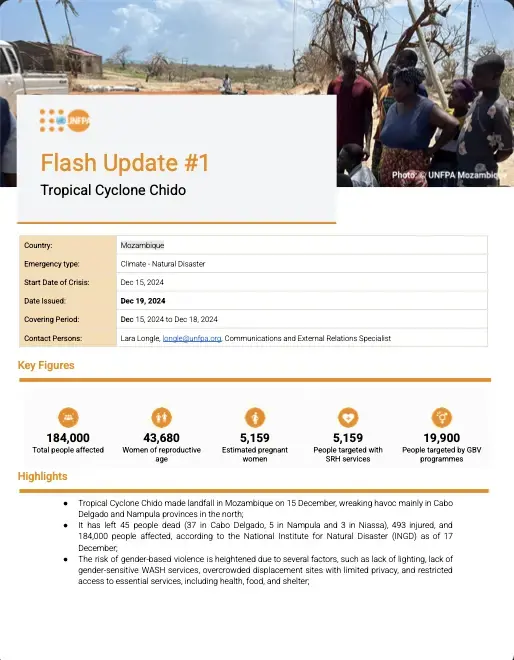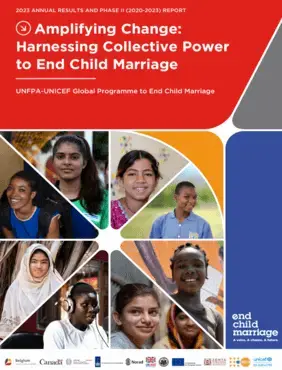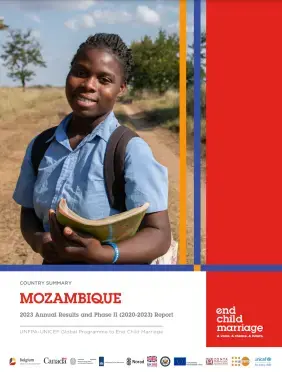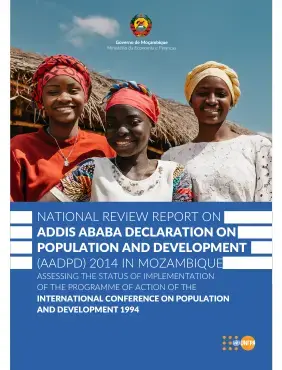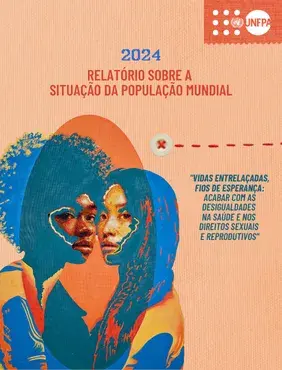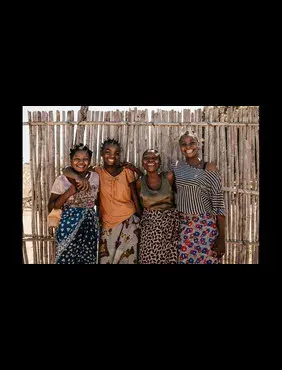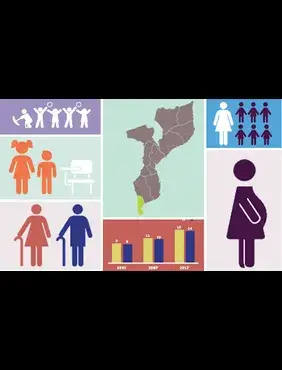Publications
Publications
Situation Report
Flash Update #3 - Cyclones Chido and Dikeledi
Tropical Storm Dikeledi and Cyclone Chido have impacted over 737,000 people, exacerbating GBV risks, as UNFPA Mozambique works to ensure protection and access to sexual and reprodu...
Read more
Situation Report
Flash Update #2 - Cyclone Chido
Tropical Cyclone Chido made landfall in Mozambique on 15 December, causing significant devastation in Cabo Delgado and Nampula provinces. The cyclone has exacerbated risks of gende...
Read more
Situation Report
Flash Update #1 - Cyclone Chido
As of 19 December 2024, Tropical Cyclone Chido has caused significant devastation in northern Mozambique, particularly in Cabo Delgado and Nampula provinces. UNFPA Mozambique i...
Read more
Annual Report
Amplifying Change: Harnessing Collective Power to End Child Marriage
2023 Annual Results and Phase II (2020-2023) Report of the Global Programme to End Child Marriage.
Read more
Annual Report
Mozambique- Phase II (2020-2023) Global Programme to End Child Marriage Country Summary
This report presents the results of Phase II (2020-2023) of the Global Programme to End Child Marriage in Mozambique.
Read more
Publication
NATIONAL REVIEW REPORT ON ADDIS ABABA DECLARATION ON POPULATION AND DEVELOPMENT (AADPD) 2014 IN MOZAMBIQUE
The report presents an overview of population and development in Mozambique from 1994- 2023, highlighting progress, achievements, challenges, and opportunities. The AADPD10+ review...
Read more
State of World Population Report
2024 State of the World Population Report
UNFPA's annual State of World Population report, "Interwoven Lives, Threads of Hope: Ending Inequalities in Sexual and Reproductive Health and Rights,", highlights th...
Read more
Annual Report
2022 in Review Newsletter
UNFPA Mozambique’s 2022 Annual Report in newsletter-formar, 2022 in Review, outlines the agency’s achievements and thematic priorities during the first y...
Read more
Publication
Thematic Studies Fact Sheets: Results of the Population and Housing Census 2017
Discover valuable insights from the 2017 Census data! The thematic studies - developed by the Government of Mozambique, with support from UNFPA - are based on 2017 Populat...
Read more

